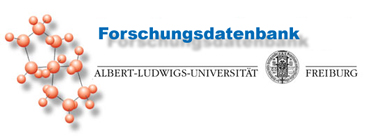| [Zurück zum Forschungsbericht] |
 |

OPTIMI - Online Predictive Tools for Intervention in Mental Illness
Projektbeschreibung:Mental health care represents over a third of the cost of health care to all EU nations. It additionally results in as much again in further costs to the economy in lost productivity. It damages families and friendships at the societal level and results in millions suffering in silence. Depression and Stress related disorders are the most common mental illnesses and the prevention of depression and suicide is one of the 5 central focus points in the European Pact for Mental Health and Well Being. While other mental illnesses may benefit in the long term, Depression and Stress will be the focal point mental illnesses mentioned in OPTIMI. Currently the main treatments for mental illness are pharmacological and evidence based Cognitive Behavioural Therapy. However little is being done to develop effective systems for Prevention of the onset of the illnesses. In addition, apart from standardised tests, little is being done to provide easier Diagnosis with a view to better determine the effects of treatment. OPTIMI will change this by developing tools to perform Prediction through early identification of the onset of an illness by monitoring poor coping behaviour. Many opponents argue that as we cannot read minds therefore prediction is not possible. However OPTIMI is based on the hypothesis that the central issue and starting point of longer term mental illness depends on the individual’s capacity and ability to cope with stress. Many of us are lucky not to be subject to daily stressful conditions that ultimately will result in changes to our biology and personality. Some are fortunate be able to cope with enormous real pressure. Many however are in high risk situations where despite their best efforts, they decompensate and develop a depressive disorder. In order to identify the onset of a mental illness, OPTIMI will first identify the occurrence of high stress in the individual on a daily basis. Then it will determine the ongoing effect of stress on the individual by studying the behaviour pattern over a longer period. Finally it will also make estimates of the base line changes in the person’s state of mind using symptomatic measurements that closely link depression with cognitive, motor and verbal behaviour. We will use wearable and domestic appliances based on EEG, EGG, Cortisol levels, Voice analysis, Physical Activity analysis and a self reporting Electronic Diary. Identification will be based on noting when stress occurs, at a fine time resolution using ECG and Cortisol, and daily using the Electronic Diary. The effects on behaviour will be identified using EEG, Voice analysis, Physical Activity analysis and the Electronic Diary. Finally specific markers of depression will be checked using EEG, Voice analysis and Physical Activity. The smart identification sensors that capture stress, specific behaviours and test results, will be enhanced with a knowledge based rule system to interpret the data and provide a diagnostic tool for both pharmacological and CBT based preventative and intervening treatments. We will then augment two existing CCBT systems to use these tools in real time to optimise the treatment cycle. The system is ideal for persons at high risk who are likely to suffer daily stressful episodes. These will include carers of the disabled and elderly, financial stress victims particularly the unemployed in recession environments and high stress roles such as in the emergency services or, for adolescents, during final graduate examinations. We will conduct two phases of trials with volunteers who come from high risk situations (such as mothers caring for a disabled child, recession unemployed and critical final examinations) The first phase being held in 3 countries (China, Switzerland, Spain) over 6 months will use the tools, develop and fine tune the algorithms against the GOLD standard of regular therapist interviews. The second phase in 2 countries (UK, Spain) will use the calibrated tools and a CCBT preventative treatment system to evaluate effectiveness in reducing the impact of stress to high risk people as well as the relapse after treatment for depression.Projektlaufzeit:
Ansprechpartner: Riemann, D
Tel: 0761-270-6919
Email: dieter.riemann@uniklinik-freiburg.de
Projektbeginn: 2010Projektleitung:
Projektende: 2012
Riemann, DKooperationspartner
Stellvertretung: Feige, B
Albert-Ludwigs-Universität Freiburg
Zentrum für Psychische Erkrankungen (Department)
Klinik für Psychiatrie und Psychotherapie
Hauptstrasse 5
79104 Freiburg
Telefon: +49 / 761 / 270-6501 / -6502
Fax: +49 / 761 / 270-6619
http://www.uniklinik-freiburg.de/psych/live/
No. Participant organisation name Part. short name Country 1 (Coord.) EVERIS SPAIN SL EVR ES 2 Eidgenössische Technische Hochschule Zürich ETH Zurich CH 4 University of Bristol UB UK 5 Universitaet Zuerich UZH CH 6 XiWrite XIW IT 7 ULTRASIS PLC ULT UK 8 Universitat Jaume I de Castellon UJI ES 9 Universidad Politécnica de Valencia UPVLC ES 10 LanZhou University LZU CN 11 MA Systems and Control Limited MAS UK 12 Universitaetsklinikum Freiburg UKLFR DEFinanzierung:
- EU
Schlagworte:
- mental illness, prevention, insomnia
Aktueller Forschungsbericht